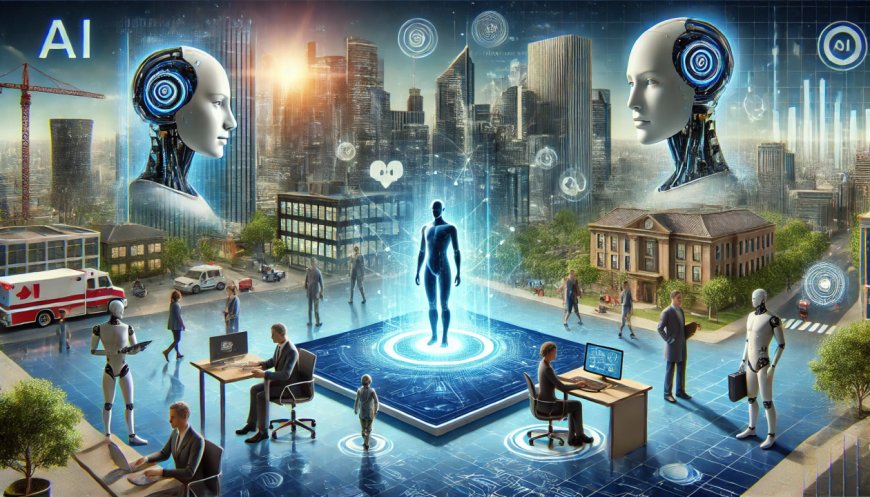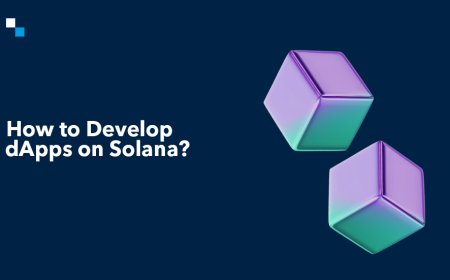Why Are Tech Giants Investing Heavily in AI Agent Development?
Tech giants like Google, Microsoft, Amazon, and OpenAI are pouring billions into AI agent development—and for good reason.

In recent years, the worlds leading technology companiesGoogle, Microsoft, Amazon, Meta, OpenAI, and othershave significantly increased their investments in AI agent development. From launching autonomous assistants to embedding agents in their cloud, productivity, and consumer platforms, these giants are betting big on what many believe is the next evolution in artificial intelligence. But why is this happening now? And what are the long-term implications of this aggressive push toward autonomous AI?
In this blog, well explore the strategic, technological, and economic reasons behind this trend, how AI agents are reshaping the digital landscape, and what it means for businesses, developers, and everyday users.
1. The Rise of Intelligent Autonomy
AI agents are not just smart chatbotsthey are autonomous digital entities that can perceive, reason, and act in dynamic environments to accomplish goals with minimal human intervention. These agents can:
-
Analyze large datasets in real time
-
Interact with users via natural language
-
Execute tasks across systems and APIs
-
Learn from past behavior and adapt
Tech giants recognize that intelligent autonomy is the next step in human-computer interaction. Rather than relying solely on apps or interfaces, users will increasingly interact with AI agents that manage tasks on their behalf.
2. Unlocking the Next User Interface Paradigm
Tech history shows that whoever controls the dominant interfaceGUI, mobile, web, voicecontrols market behavior. Today, AI agents are poised to become the next interface paradigm.
-
Microsoft has integrated Copilot across its Office suite, Windows OS, and Azure services, aiming to make AI the default interface for work.
-
Google is transitioning from Search as a reactive query tool to Search as an agent that can interpret intent, summarize content, and complete tasks.
-
Amazon is transforming Alexa from a voice assistant into a proactive household agent.
By embedding agents into operating systems, browsers, devices, and applications, these companies hope to own the touchpoint where decisions are made and actions are takendramatically increasing user engagement and loyalty.
3. Competitive Differentiation and Ecosystem Lock-In
AI agents offer a powerful opportunity for tech giants to deepen user dependency and lock customers into their ecosystems. For example:
-
An AI agent trained on your Microsoft 365 data becomes irreplaceable to your workflow.
-
A Google agent that understands your calendar, email, and habits may outperform any standalone app.
-
Amazons agent handling your shopping, smart home, and media becomes the default household controller.
The more these agents learn and integrate, the harder it becomes for users to switch platforms. Tech companies are leveraging agents not just as tools, but as relationship-builders.
4. Automating Enterprise Workflows at Scale
Enterprises are seeking ways to reduce costs, speed up operations, and streamline decision-making. AI agentsespecially when integrated with cloud platformsare a perfect fit. Heres how:
-
Microsofts Azure AI Agents help automate customer service, marketing campaigns, and document processing.
-
Google Clouds Vertex AI Agents power smart recommendations, forecasting, and autonomous workflows.
-
Amazon Bedrock and SageMaker allow companies to deploy scalable agents into core infrastructure.
By embedding agents into enterprise workflows, tech giants are expanding their influence across industriesbe it healthcare, retail, logistics, or finance.
5. Monetization Through Agent-as-a-Service (AaaS)
Just like SaaS revolutionized software delivery, "Agent-as-a-Service" is shaping up to be a lucrative model. Companies can:
-
Charge businesses for API-based access to agents (e.g., OpenAI's GPT agents via API)
-
Offer customizable agents on subscription tiers
-
Bundle agent capabilities with productivity tools (e.g., Copilot in Office 365)
OpenAIs GPT-4o, Googles Gemini, and Metas open-weight LLMs are already being positioned as platforms upon which businesses can build tailored AI agents. This positions the tech giants to dominate the AaaS economy in the years ahead.
6. Data Network Effects and Knowledge Advantage
AI agents thrive on dataespecially contextual, behavioral, and historical data. Tech giants already possess massive amounts of it:
-
Google has search history, Gmail, Docs, Maps, and YouTube.
-
Microsoft has enterprise emails, calendars, documents, and collaboration data.
-
Amazon knows shopping behavior, device usage, and media preferences.
Each interaction with an AI agent becomes a feedback loop, improving the agents performance and further training the model. This creates a compounding advantage that newer entrants cant easily replicate.
7. Advancing Toward Artificial General Intelligence (AGI)
While still a long-term vision, AGIor machines that can perform any intellectual task a human canis a major motivator behind AI agent development. Tech giants are approaching AGI in incremental steps:
-
Creating generalist agents capable of reasoning, planning, and adapting across domains
-
Training multimodal agents that understand and generate text, audio, images, and video
-
Enabling agents to self-improve, debug code, and solve unseen challenges
Each investment in agentic AI brings them closer to building systems with broader and deeper capabilitiespaving the way toward AGI.
8. FOMO: Fear of Missing Out on the Next Big Platform
Just as some companies missed the mobile and cloud computing waves, no tech giant wants to be left behind in the AI agent revolution. The stakes are too high:
-
Losing the user interface war means losing user mindshare.
-
Delaying agent integration risks giving competitors a lead in user experience.
-
Falling behind on agent innovation can mean losing enterprise contracts and developer loyalty.
This fear drives aggressive acquisitions, partnerships, and funding for AI agent startups, research labs, and open-source frameworks.
9. The Role of Open Source and Decentralization
While tech giants dominate proprietary AI models, theres also growing investment in open-source agentic tools:
-
Metas LLaMA agents
-
Microsoft-backed open frameworks like Semantic Kernel
-
OpenAIs community-driven GPTs and tool integrations
These open initiatives allow tech companies to drive standards, gain developer mindshare, and influence how the broader AI ecosystem evolveswhile keeping control over high-value infrastructure and APIs.
10. Shaping the Future of Work, Commerce, and Innovation
Ultimately, AI agents are not just productsthey are infrastructure. Tech giants are investing heavily because they know agents will:
-
Redefine how knowledge work is done
-
Transform commerce through intelligent shopping and service experiences
-
Accelerate innovation in fields like biotech, education, manufacturing, and finance
By building the underlying agent platforms, theyre positioning themselves as the operating system of the future economy.
Conclusion
Tech giants are investing heavily in AI agent development because they see it as a convergence of several high-value opportunities: a new user interface, deeper ecosystem integration, enterprise automation, recurring monetization, and a step closer to general intelligence. More than just hype, this is a long-term strategic play to shape the next generation of computing.
For startups, developers, and businesses, the message is clear: AI agents arent just a trendtheyre becoming a foundational layer of digital infrastructure. Whether youre building, adopting, or competing, the time to act is now.
























